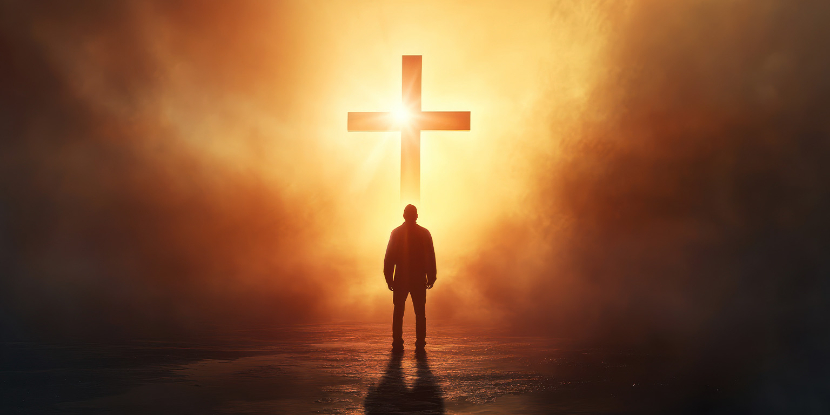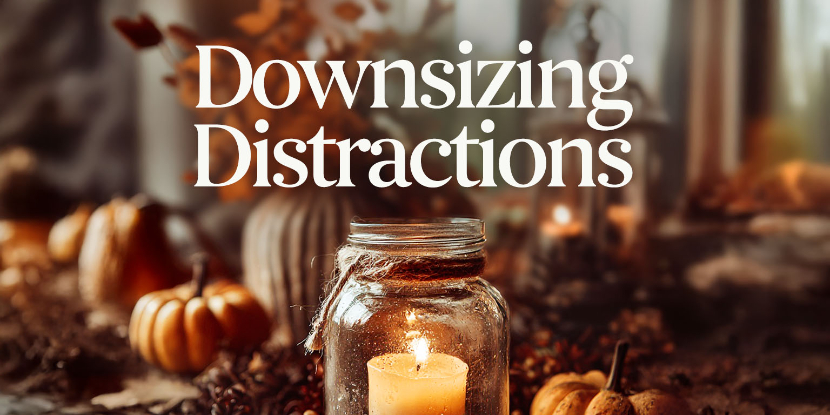From the March 2021 Issue

BRAVERY: Our External Response
FROM THIS POINT FORWARD
You’ve no doubt heard the story about the two hunters in the forest who were surprised by a huge grizzly bear. They immediately took off running with the bear in hot pursuit. The slower of the two men yelled out, “We’ll never outrun this bear!” The man in the lead yelled back over his shoulder, “I don’t have to outrun the bear. I just have to outrun you!”
Yes, it’s an old joke—but it makes me laugh every time. And it’s the perfect way to introduce something I want to talk about: bravery. But before we assume that the two men running from the bear weren’t brave, let’s look more closely.
God puts us in all kinds of fight–or–flight situations so we can learn two things: (1) bravery and (2) trust.
Why? Because you have a decision to make when you encounter a grizzly bear (or some other scary situation—whether physical, spiritual, or emotional). And your body needs the same resources regardless of what you choose: Will it be flight or fight? If you choose to flee the bear, you will run faster. If you choose to fight the bear, you’ll hit harder. Your body is primed and prepared to give its all regardless of your choice.
Is it cowardly to flee a charging grizzly bear? Not to me! Sometimes “flight” is a much wiser decision than “fight” when it comes to the physical arena of life.
But what about in the spiritual arenas of life? Sometimes God puts us in situations that could be life–threatening (taking the Gospel into a dangerous culture), but other times they may be emotionally threatening. God puts us in all kinds of fight–or–flight situations so we can learn two things: (1) bravery and (2) trust.
If you know that fight–or–flight feeling, then you also know what fear feels like. And you also know, or will hopefully come to know, the amazing power of spiritual bravery—obeying God’s call and trusting Him with the outcome.
What Is Bravery?
If courage is internal, bravery is external.
If courage is internal, bravery is external. It’s one thing to feel courageous on the inside, but it’s another thing to be brave—to demonstrate the courage of one’s convictions by acting bravely in the face of obstacles, threats, and risks.
Can one be courageous (internally) but not ultimately be brave (externally)? There is, admittedly, a fine line between the two. The best way to think of them is not “either–or” but as a progression: Bravery begins with courage, and courage is completed by bravery. I think it’s possible for a Christian to have all the components of courage in place—faith, trust, willingness, resolve—but be paralyzed by fear and never step out in faith to act. Fear is a powerful emotion and there are many variables at work. Depending on maturity, personality, past experiences, tolerance for pain, willingness to fail, and other variables, some people may be “braver” than others.
Bravery, when lacking, can be acquired.
Who Needs Bravery?
Beginning with our ancestors, Adam and Eve, everybody needs bravery—you, me, everyone. Some of God’s greatest heroes started out lacking bravery but found it by the grace of God.
Moses (Exodus 3 – 4). When God called Moses to lead the Hebrew slaves out of Egypt, he was terrified at the thought. But who became the greatest hero in Jewish history? Moses—he confronted Pharaoh, depended on God, and put his courage into action.
Gideon (Judges 6 – 7). God called Gideon to lead Israel against the marauding Midianites and defeat them. Gideon couldn’t believe that he, the smallest in Israel (Judges 6:15), could defeat the largest of Israel’s opponents. Just as God promised Moses, He promised to be with Gideon (Judges 6:16), which gave Gideon courage. And courage turned to bravery in battle.
Jonah (Jonah 1 – 4). Jonah was neither courageous nor brave—he got on a ship and fled Israel when God called him to preach to the Assyrians. Though his bravery was imperfect, he eventually obeyed God and saw a revival in Assyria.
Esther (Esther 4 – 5). When a teenage Jewess realized she held the key to her people’s survival, she put fear aside and made a request of the king of Persia. She took the counsel of her cousin and realized God had put her in a place of influence to save the Jews. If she remained silent, many would have died (Esther 4:14). Sometimes cowardice is just not an option.
Peter (Matthew 26; John 21; Acts 2 – 5). Peter was anything but brave when he denied knowing Jesus; but he was the epitome of bravery when he preached at Pentecost, led the church in Jerusalem, and stood up to the Sanhedrin. Sometimes the bitter seed of failure brings forth the sweet fruit of bravery.
Stephen and Paul (Acts 7 – 9). We never see cowardice in these two men, only bravery from the start. With them, and others, we see the extent to which bravery can go—all the way to a willingness to die (Luke 14:27; John 15:13; Acts 7:59; 14:19).
There are also examples of bravery being overcome by fear in spite of having every opportunity to put courage to work. Judas did a cowardly thing when he sold access to Jesus for thirty pieces of silver (Matthew 26 – 27), and Ananias and Sapphira let money keep them from telling the truth (Acts 5:1–11). (Make a note: Money overcame bravery in both instances.)
We could go on with many examples, but you get the picture: Bravery, when lacking, can be acquired. Paul had it from the start while Peter gained it over time. Neither is better; we’re all different. The goal is to possess it and exercise it when (not “if”) God puts us in a place where it is needed.
How Do I Get Bravery?
Know the situation. Learn to recognize the fight–or–flight symptoms in your body. Don’t be afraid of fear; recognize fear as an emotion alerting you to a decision to be made. When you feel weak or fearful, you know God is giving you an opportunity to exercise bravery and faith. Don’t panic. Stand your ground; breathe deeply; and pray: “Father, I feel like fleeing, but I’m willing to fight for You if that’s what You’re calling me to do.”
Know yourself. We’re all somewhere between Paul and Peter on the bravery scale. Where are you? Are you naturally timid like Timothy (2 Timothy 1:7)? Do you have a compliant personality or a bold one? There is no right or wrong, but you must recognize the chinks in your armor that Satan is likely to exploit. Know those situations in which you need God’s strength the most.
Know God. In most of the situations in Scripture where someone became brave, a key was God’s promise to be with them. If you are His child, He is with you (Matthew 28:19–20; Mark 16:20; Galatians 2:20; Colossians 1:29; Hebrews 13:5). But you must act as if you believe this is true.
Know God’s promises. Charles H. Spurgeon said it best: “My own weakness makes me shrink, but God’s promise makes me brave.”
When all is said and done, we get bravery by being brave: “Watch, stand fast in the faith, be brave, be strong” (1 Corinthians 16:13). Every time we defeat fear and step out in faith, we are being brave for Christ’s sake.
This article represents a digital column of Turning Points Magazine & Devotional. Learn more about the magazine and request your free print subscription today!
More Articles
This Month's Magazine Resource
Subscribe Now
Each month, read articles and devotionals from Dr. David Jeremiah that will encourage, challenge, and strengthen your walk with the Lord.















 Turning Point for God is a tax-exempt, not-for-profit, religious corporation as defined under Section 501(c)(3) of the Internal Revenue Code. Your donation gift(s) are very much appreciated and may qualify as a charitable deduction for federal income tax purposes.
Turning Point for God is a tax-exempt, not-for-profit, religious corporation as defined under Section 501(c)(3) of the Internal Revenue Code. Your donation gift(s) are very much appreciated and may qualify as a charitable deduction for federal income tax purposes.




